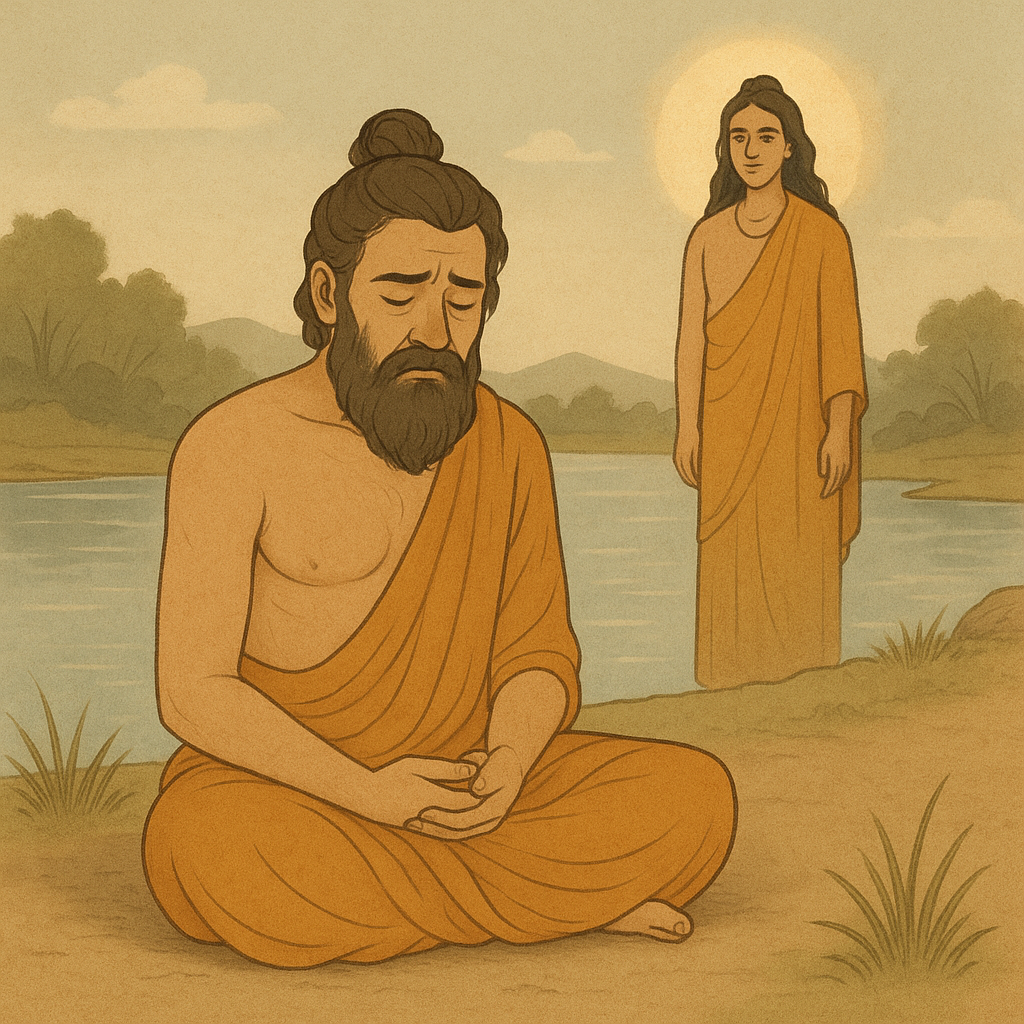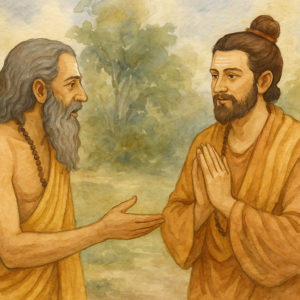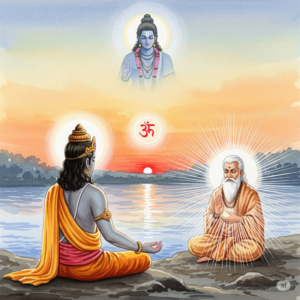In our daily grind, how often do we let anger, frustration, or ego cloud our judgment? A rude encounter, a tough deadline, or even minor inconveniences sometimes push us toward impulsive actions, leaving behind a trail of regret. King Parikshit’s tale from the Mahabharata resonates with this universal human tendency, showing us the price of letting emotions take over—and the redemption that follows.
Imagine a celebrated ruler—wise, powerful, and revered—brought to the brink of his mortal end by a single moment of anger-fuelled misjudgement. King Parikshit’s journey from committing an impulsive act to accepting his fate with grace and seeking spiritual liberation is a story that mirrors modern struggles, reminding us of the transformative power of self-awareness and forgiveness.
Parikshit’s story is a beacon of hope. It urges us to transcend fleeting emotions, seek higher truths, and live every moment with intention.
The Tale Unfolds
In the sacred lore of the Mahabharata, King Parikshit, grandson of the great Pandava Arjuna, ruled his kingdom with wisdom and devotion. Yet, even the noblest of hearts can falter. One fateful day, while hunting in the forest, Parikshit’s relentless pursuit of a deer left him parched and fatigued. Desperate for water, he stumbled upon the hermitage of Rishi Shamik, a sage deeply engrossed in meditation.
Parikshit, overwhelmed by thirst and frustration, asked the sage for water. His request was met with silence—not out of disdain, but because the sage had transcended worldly senses in his meditative state. Misjudging the sage’s silence as arrogance or hypocrisy, the king’s ego flared. In a moment of impulsive anger, Parikshit lifted a dead serpent with his bow and draped it around the sage’s neck. He departed, harbouring doubts about the saint’s sincerity.
Rishi Shamik’s young son, Shringi who was a great sage, discovered the insult inflicted upon his father. Consumed by rage and a sense of justice, Rishi Shringi cursed King Parikshit to meet his death by the venomous bite of the serpent Takshaka on seventh day, after the curse.
The Sage’s Forgiveness and King’s Repentance
When Rishi Shamik awoke and learned of the curse, he rebuked his son. “Wrath is the enemy of wisdom,” he said, lamenting the hasty curse. “King Parikshit, despite his momentary lapse, is a noble soul and a devoted follower of Lord Krishna. He does not deserve such harsh punishment.”
Meanwhile, back in his palace, King Parikshit was struck by profound remorse. Realizing his grave error, he acknowledged the justice of the curse. Parikshit decided to embrace his fate as an opportunity for spiritual liberation. Renouncing his throne, he entrusted his responsibilities to his son, Janamajaya, and resolved to fast unto death by the sacred banks of the Ganges.
The Arrival of Shukadeva
As Parikshit sat in penance, contemplating his end, he sought guidance from the assembled sages and saints. His sole desire was to immerse himself in the remembrance of Lord Krishna in his final days.
It was then that Shree Shukadeva, the youthful and enlightened son of Ved Vyasa, arrived. Clad in minimal attire and radiating divine wisdom, Shree Shukadeva’s presence mesmerized the gathering. Parikshit, with folded hands, asked the young sage, “What is the duty of one facing imminent death? How does one prepare to attain liberation and the ultimate truth?”
Shree Shukadeva, seated with a calm and compassionate demeanor, responded, “O King, your question is noble, for it is not only for yourself but for the benefit of humanity. The purpose of life is to live in constant remembrance of the Supreme. The stories and Lilas of Lord Krishna cleanse the heart and prepare the soul for union with the divine. In the fleeting moments of life, what matters most is what you remember at the time of your passing.”
For seven days, Shree Shukadeva narrated the Shrimad Bhagavatam, expounding upon the divine pastimes, virtues, and transcendental teachings of Lord Krishna. Through this discourse, Parikshit’s heart was purified. With his final breath, he attained liberation, shedding his mortal coil to merge into the eternal.
Closing Thoughts
In today’s fast-paced and materialistic world, King Parikshit’s story serves as a beacon of self-reflection and spiritual awakening. Like Parikshit, many of us are ensnared by ego, anger, and impulsiveness. However, when life offers challenges or adversities, they can become catalysts for transformation.
The example of Rishi Shamik teaches us the power of forgiveness and equanimity, even in the face of grave injustice. Shringi’s hasty curse reminds us to guard against the perils of anger, while Shukadeva’s wisdom shows us that it’s never too late to seek redemption and higher truth.
“The quality of our life is determined by what we remember and cherish at the end.” The tale of King Parikshit and Shukadeva resonates deeply, reminding us to live with purpose, seek wisdom, and nurture an unwavering connection with the divine.



